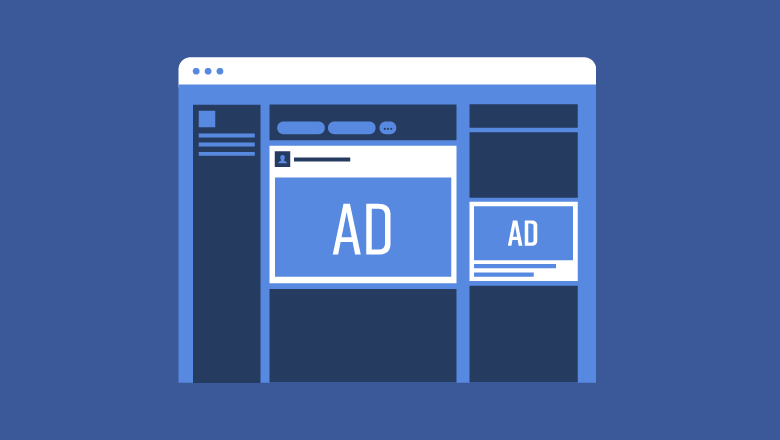The Facebook Boycott: What Small Businesses Need to Know About #StopHateForProfit
The #StopHateForProfit campaign is one of the latest and largest responses to the current Black Lives Matter movement. However, its call to action—for businesses to pause their Facebook ads for July—creates a challenging situation for small businesses in the midst of economic hardship brought on by the pandemic.
In this post, we’re going to cover what the #StopHateForProfit movement is, how to assess the extent to which your business can participate, as well as various ways to support the Facebook ad boycott depending on your circumstances.
What is the #StopHateforProfit movement?
The #StopHateForProfit campaign began on Wednesday, June 17, by Color of Change, the largest online racial justice organization in the U.S. Together with the NAACP, ADL, Sleeping Giants, Free Press, and Common Sense Media, the organization began calling on Facebook advertisers to halt their ad spending for July 2020.
This Facebook advertising boycott originates from the fact that 99% of Facebook’s $70 billion yearly revenue comes from ads. According to Color of Change’s campaign announcement, the hope is that “losing ad revenue for one month may cause Facebook to reconsider how it has ignored the demands of Black users and civil rights organizations.”
Since its inception, over 100 advertisers have joined the Facebook ad boycott, including large brands like Adidas, Best Buy, Starbucks, Coca-Cola, Clorox, and more.
The lost ad spend from these large brands has had an almost immediate impact: Facebook’s market value has dropped $60 billion in just two days.
Who can participate in #StopHateForProfit?
The short answer? Any business. And with the recent momentum of the Black Lives Matter movement and antiracism activism, many businesses want to jump on any opportunity to help spark change. However, being also in the midst of an economic crisis due to the pandemic, this puts businesses, especially small businesses and nonprofits, in a tough spot.
Our Senior SEO Manager Gordon Donnelly explains that for large companies, participating in #StopHateForProfit is more feasible:
“For enterprises and public companies with sky-high budgets, numerous stakeholders, and huge customer bases/public visibility, the story is different. Boycotting Facebook could mean lost revenue in the near term but a higher upside in the long run. These companies have higher margins for error. The promise of solidifying existing customer loyalty combined with the potential to woo new customers that share your values outweighs the risk of losing some dough in the near term. Plus, there’s the added bonus of actually influencing some change.”
For small businesses, on the other hand, the movement puts them in a difficult position. Donnelly goes on to say:
“Small businesses rely on Facebook advertising to generate invaluable brand awareness and lead volume. Plus, Facebook ads feed display remarketing, organic and direct conversion volume, paid conversions on brand terms, and much more. So for the overwhelming majority of these businesses, boycotting Facebook would mean losing a solid chunk of revenue and disrupting their marketing flywheel across all channels. And with most of these businesses already struggling to generate revenue during the pandemic, reducing or pausing Facebook spend could be risky.”
The #StopHateForProfit website also addresses the bind that nonprofits might be in: “Many nonprofits rely on paid ads on Facebook to get their message out, especially as Facebook has increasingly limited the ability of organizations to organically reach audiences.” For this reason, the recommendation for nonprofits is to make the best decision for their needs.
Tips for determining how to participate in #StopHateForProfit
Should you participate in the Facebook advertising boycott? Our experts here at WordStream provide some tips on determining the most effective way for your business respond to the #StopHateForProfit movement:
Understand your goals with respect to Facebook advertising
WordStream Lead Acquisition Manager Kristina Simonson suggests that you ask yourself:
- Can your business afford the potential loss in lead/customer generation?
- How does pausing spend for a month impact your ability to ramp back up?
Look out to see what your competitors are doing
Simonson also points out that it’s important to keep track of what other companies in your industry are doing. You can do this by:
- Looking at statements on competitors’ websites and social media channels.
- Browsing the Facebook Ad library.
Understand the sentiment in your industry
Holly Niemiec, senior account manager and one of PPC Hero’s Top 50 Most Influential PPC Experts, strongly encourages monitoring your social media channels.
“Whether you’re enterprise or SMB,” she says, “monitor the comments on your Facebook ads. Monitor your organic comments. Monitor your DMs and Twitter replies. If you’re seeing enough vitriol, especially to the point where performance dips, it might make sense to reduce spend.”
Facebook advertising alternatives during the #StopHateForProfit movement
Pausing Facebook ads for a month could mean damaging revenue losses, especially for small businesses. However, businesses who wish to participate in the Facebook ad boycott can reallocate their Facebook ad budget toward alternative but effective efforts. Here are a few options.
Run local news ads
Rather than switching your ad budget over to other social platforms like TikTok or Snapchat, you can put your advertising dollars into local news ads. This way you can participate in the movement while mitigating some of that revenue loss.
Consider advertising on news sites for your local community.
In addition, WordStream’s Senior Vice President of Marketing Laura Taylor says “This is a great way to support the local news sources that bring injustice to light, and where so many eyeballs are focused during the pandemic as people look for guidance within their community.”
Google Display Network
While Facebook ads are ideal for prospecting, custom intent and in-market audiences have improved the GDN’s targeting capabilities, making it a substantial alternative. In addition, with Discovery ads now available to all advertisers, you can prioritize lead quality.
YouTube advertising
If you have video ads that you run on Facebook and Instagram, consider running those on YouTube instead, or starting a YouTube display ad campaign.
Donate the money to antiracist initiatives
If you can afford to pause your Facebook ads for July and not reallocate your budget toward another ad platform, consider donating that money to programs that support black empowerment and antiracist initiatives, like Vans has done.
Vans is reinvesting all of their Instagram and Facebook ad dollars for the month of July.
And remember, the call to action is to pause ad spend on Facebook. Many of these businesses are still planning to post organically, so you can still share your donation outcome or strategy with your audience.
Fund for matching employee donations
Another way to reallocate your Facebook ads budget is to reinvest it into a fund for matching employee donations to antiracist organizations. You may even wish to write a press release on your initiative and announce it on your social channels to help spread the word.
How to participate in the #StopHateForProfit movement if you can’t pause your Facebook ads
The advent of the #StopHateForProfit Facebook ads boycott during a world-wide economic, social justice, and public health crisis leaves many businesses trying to figure out how to participate without going under. Here are some alternative ways to participate for those businesses that can’t afford to pause their ads.
Pause your Facebook ads briefly
If you, your customers, and/or your employees feel strongly about the Facebook advertising boycott, if you can handle the revenue loss, or if Facebook hasn’t been a revenue-generator for you in the past, then you may want to consider actually pausing your Facebook ad campaigns—even if just for some part of July.
Donate a percentage of your Facebook ad profits
If you can’t afford to pause your ads, you could propose to donate a certain percentage of your profits from Facebook ads to a civil rights organization of your choice.
Run an influencer collaboration
If you can’t afford to boycott Facebook ads or donate to an organization, try an influencer collaboration. Influencers are like mini-celebrities within a particular niche that have a wide following on their social media accounts and blogs. Writing a guest post for their blog, inviting them to write for your blog, or cross-promoting one another on social media are all examples of influencer collaborations you could try.
Determine your response to #StopHateForProfit
Every business is unique, and given the current political, economic, and social climate, each business’s response to the #StopHateForProfit movement should be carefully considered. Here is a wrap-up on the various strategies you may implement for your business:
- Assess your goals, competitors' behavior, and customer sentiment to determine the extent to which you can participate.
- Reallocate your budget to local news ads, Google Display ads, or YouTube ads.
- Donate your Facebook ad budget to an antiracist initiative or a donation matching program.
- Pause your Facebook ads briefly.
- Donate a percentage of your Facebook ad profits to an antiracist organization.
- Run an influencer collaboration.
Thank you to Ceillie Clark Keane, Gordon Donnelly, Kristina Simonson, Laura Taylor, Holly Niemiec, and Elisa Gabbert for their collaboration on this post.










